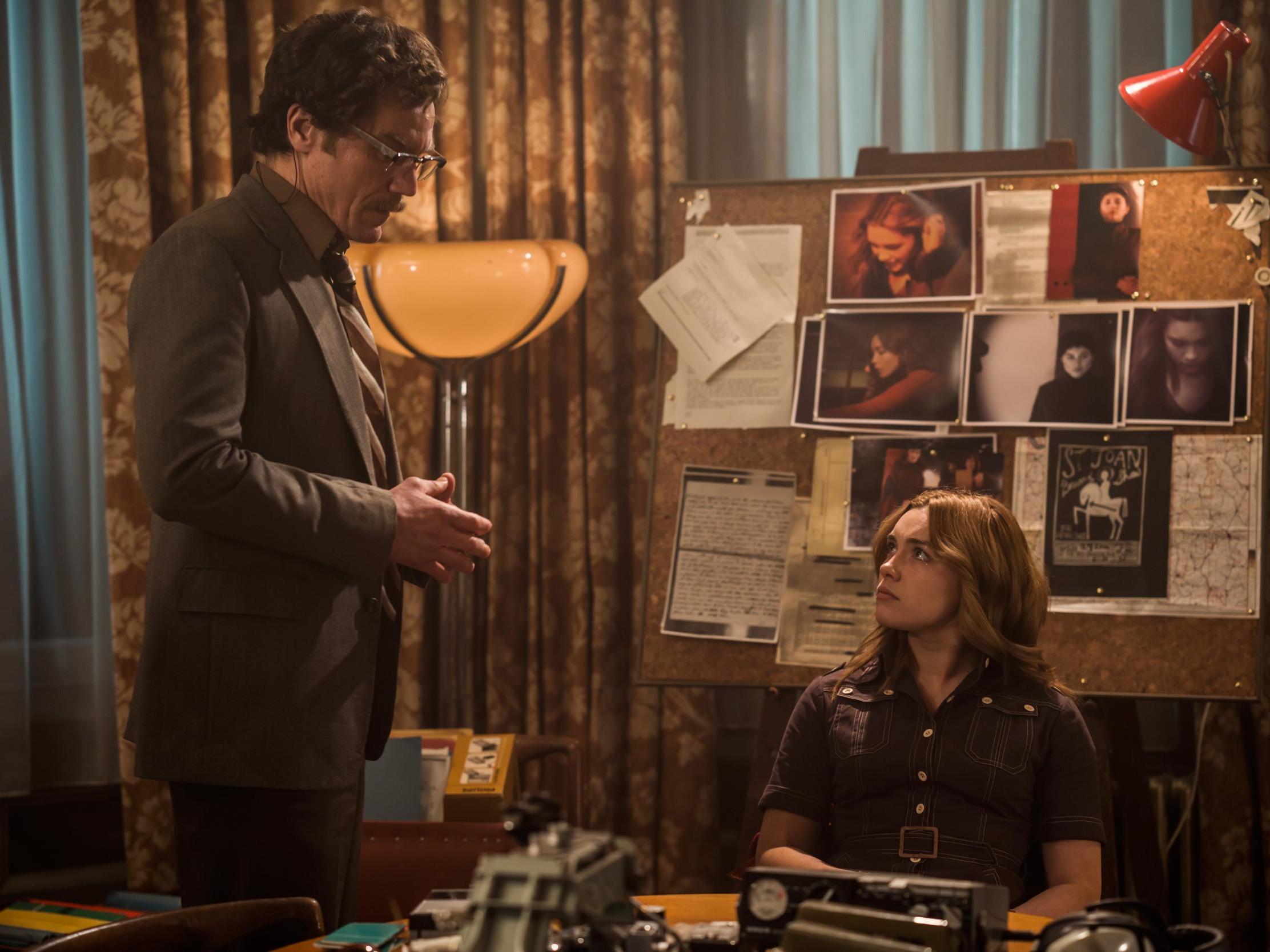The Little Drummer Girl, episode 5, review: Michael Shannon shines in penultimate outing
Latest outing effectively puts pieces in place for next week's finale

Your support helps us to tell the story
From reproductive rights to climate change to Big Tech, The Independent is on the ground when the story is developing. Whether it's investigating the financials of Elon Musk's pro-Trump PAC or producing our latest documentary, 'The A Word', which shines a light on the American women fighting for reproductive rights, we know how important it is to parse out the facts from the messaging.
At such a critical moment in US history, we need reporters on the ground. Your donation allows us to keep sending journalists to speak to both sides of the story.
The Independent is trusted by Americans across the entire political spectrum. And unlike many other quality news outlets, we choose not to lock Americans out of our reporting and analysis with paywalls. We believe quality journalism should be available to everyone, paid for by those who can afford it.
Your support makes all the difference.“The pieces are falling into place,” says the Israeli spymaster Michael Kurtz (Michael Shannon) in episode five of The Little Drummer Girl (BBC1). So they are. His little English drummer girl Charlie (Florence Pugh) has infiltrated a Palestinian terror camp, apparently winning the trust of the remaining members of the powerful Al-Khadar family. Having acquiesced in the assassination, by the Israelis, of Salim Al-Khaddar, she persuades his big sister Fatmeh (Luna Izabal) that she and Salim had been lovers, and that she was one of the last people to see him alive before he died in a “car accident” in West Germany.
Kurtz picked Charlie, among other reasons, because she is an actor, and the Palestinians are duly taken in, conferring upon her the special status of “martyr’s widow”. She is, as Kurtz had planned, getting closer to the leader of the faction, elder brother Khalil Al-Khadar.
But who is Charlie actually drumming for? Israelis? Palestinians? Herself? Both sides speak of her as part of their “family”, yet we know she cannot be both. Intelligent as she is, and with a certain native cunning, does she realise this? As Kurtz remarks, “it is an all or nothing game now, she is either a dead body or a family member”. Khalil would say the same.
Kurtz recruited Charlie remarkably easily, which leaves some doubt in the viewer’s mind about her sincerity. She was picked by the Isrealis to become their “asset”, Kurtz’s very own star player in his “theatre of the real”, because of her sympathy for the Palestinian cause – but tempered by her disgust at the cruelty with which the longest war in the world is prosecuted by both sides. So, as the handsome Israeli agent Gadi (Alexander Skarsgard) has warned her, when she finds herself surrounded by dispossessed Palestinians grieving for dead children, she becomes “ashamed deceiving them”.
True enough. As she learns a little Arabic from the kids, and then sees one of them vapourised by an Israeli air strike, the sense of conflicted emotions is tangible, but never overdone (Pugh gets the balance just right). By the end of her boot camp session, featuring body slams and RPG launchers, the diminutive Charlie is a sort of mash-up of Goldie Hawn in Private Benjamin and Uma Thurman in Kill Bill (that’s meant as a compliment). She passes her Palestinian test of loyalty just as she has previously passed her Israeli ones.
Back in London, she assumes another “role”, this time with a cover story provided for her by her Palestinian bosses; a South African “fascist” student at the University of Durban visiting her cousin in London. Charlie’s handed a mousey wig, chunky brown knitwear and some thick specs that make her, now, resemble Velma Dinkley off Scooby Doo – entirely appropriate for a drama set in circa 1979. Her mission is to kill an Israeli academic who is to give a speech at a polytechnic to mark the anniversary of Israeli independence / the Palestinian catastrophe. A bomb in a briefcase is duly swapped, but discreetly scooped up by the Mossad squad hovering around in constant surveillance, and – in fact – found only to contain some pamphlets rationalising apartheid (toxic but not directly deadly). It was a clever feint by the Palestinian gang, a way to flush out any Israeli or British intelligence presence. It almost worked.
Which brings us to Charles Dance and the authentic whiff of British establishment antisemitism, or at least anti-Zionism. Dance plays the Secret Intelligence Service chief Commander Picton, to whom Kurtz turns for assistance in thwarting the attack. Picton – and it makes one wince with especial pain these days - makes no attempt to disguise his contempt for “Zionist thugs”, being the Irgun terrorists he encountered as junior officer at the fag end of the British mandate in Palestine, around 1948. And so you grasp, without Kurtz uttering a single syllable, the motivation, the fear if you like, that drives the Zionist project. It is one of Shannon’s best scenes, effective quiet foil to Picton’s racist diatribe.
One nice touch at Picton’s Bletchley Park style establishment is a large portrait of Ernest Bevin hanging on the staircase as Kurtz and Picton go out to catch some “clean English air”. Bevin was foreign secretary when the British got the hell out of the Holy Land, and was himself an incorrigible anti-Semite. No wonder all the characters, Israelis and Palestinians alike, blame the British for “starting it all”.
In the episode’s closing moments, Charlie meets Khalil Al-Khadar, and we know that she will, in next week’s final episode, be forced to make a choice between her “families”.
Won’t she?
Join our commenting forum
Join thought-provoking conversations, follow other Independent readers and see their replies
Comments